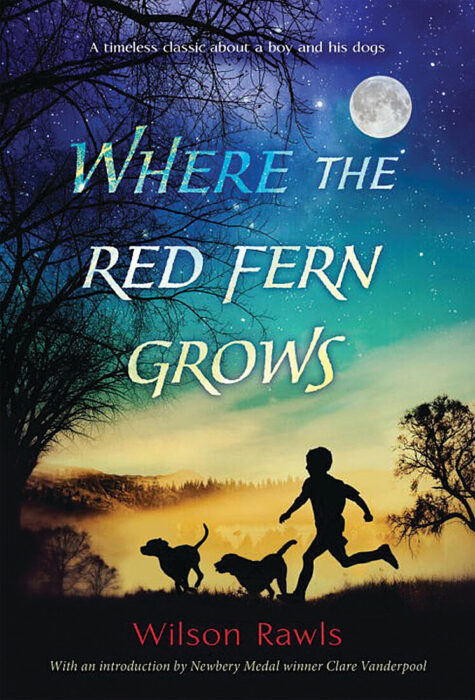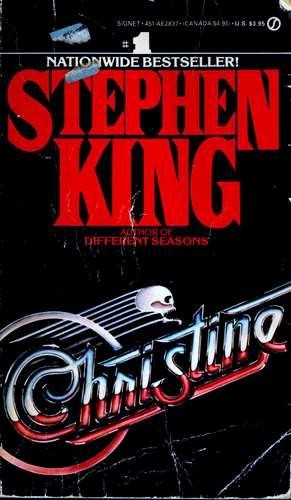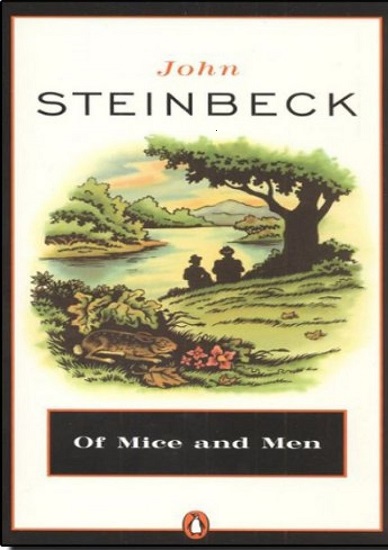Favorite Books & Stories - May 2021
My whole life has been unfortunately plagued with a resistance to reading, even in spite of my great love of writing. During my primary and secondary school years, I was forced to read. And I mean that word quite literally, forced. Coerced. I did not want to read because it had always been for the sake of writing a report, over-analyzation for the sake of “learning what a book meant”, or “what the author was trying to say”. This is, quite honestly, a terrible way to look at literature, at least as the singular way to experience it. It sucked the joy out of reading.
For years, I have said with some embarrassment, “Film is my literature, watching movies is my reading.” While I still have a great deal of my time dedicated to watching and digesting cinema, I have thankfully taken the time to reevaluate literature and made an effort to appreciate it more. With my recent reading of some of the stories of H.P. Lovecraft and listening to the audiobook edition of E.L. Doctorow’s great American novel Ragtime, I can say with some certainty that I have found a new love.
Since I love lists, particularly when it comes to analyzing and appreciating art (not in a strictly quantitative way, but in a playful and fun way to spend more time thinking about it), I have decided to write a bit about my favorite books. I plan to update this list every once in a while as I discover new authors and enjoy more and more literature. This 2021 list represents my top 10 favorite books from the first 21 years of my life, mostly composed of books I read for school. Hopefully, someday I will have read so many more books that this list will seem very quaint in comparison.
#10 Where the Red Fern Grows by Wilson Rawls
This is the book I chose to represent the very early years of my readings. I was absolutely enthralled with this book's story when I read it with the rest of my class in fifth grade, which was a complete rarity, as most of the time then I hated reading. Fourth grade was when I had read the absolute worst book I have ever read, a book ironically titled Masterpiece, about a boy who finds a beetle that can paint. It seemed all that authors could ever offer me at that age was superfluous plots and talking animals. However, Where the Red Fern Grows was markedly different. I cared about the characters, the emotions. It all felt very true to life, and it was written all the way back in 1961.
The story itself is about a boy who ends up caring for two dogs, watching them grow and bonding with them. It’s just a very emotional and relatable story, and it isn’t high drama, but it doesn’t have to be. I don’t remember a ton from the book, but I can still feel the emotions that linger from the story.
Also, side note that the movie adaptation which we watched in class for this was absolutely terrible. Never got over how annoying and weird they made the bully characters for no good reason. If my memory serves me right, one wore something like a pirate hat and the other wore a headband with lollipops on it. Yeah. Fucking bizarre details to add to a touching story about dogs, right?
Another side note: I probably should have put To Kill A Mockingbird in the number ten spot because it is the superior novel, but I figured less people have heard of Where the Red Fern Grows and I thought I ought to give a shout out to the first book I really enjoyed.
#9 Heart of Darkness by Joseph Conrad
As a preteen/early teen, one of my favorite movies was the Vietnam War epic Apocalypse Now by Francis Ford Coppola. Yes, you read that right. I was into more mature media at an earlier age than most. But anyway, that movie is still one of the best movies on the Vietnam War, and part of that movie’s genius was the way it adapted Conrad’s novella on colonialism Heart of Darkness. When I was assigned this as reading, I enjoyed it quite a bit, and after I had seen the movie I actually looked forward to reading it.
This is also one of the few stories I have read twice. I had to reread it for eleventh grade English. I loved it even more that time. It’s got some dense language if I remember correctly, but it’s really an excellent story about the exploitation of the third world by the first world.
It centers around a man named Marlowe who’s sent on a steamboat to the depths of the Congo to transport ivory. Along the way, he becomes obsessed with finding a man he keeps hearing stories about: an ivory procurement agent named Kurtz. He also discovers how the “savagery” of the African subjects of the colonial Congo doesn’t match the brutality of the colonists and that that brutality has also been noticed by this mysterious Kurtz. Or, that’s how I remember it anyway. Powerful stuff.
#8 Uzumaki by Junji Ito
Some may consider this a cheat because it’s a graphic novel, specifically a Japanese manga. I consider it to be literature nonetheless, and it’s great literature at that. Cosmic horror at its finest. Ito crafts a believable world to drop unbelievable horrors into. There have been video essays I’ve seen that dive into how masterfully Ito uses the page turn. You’ll be looking at an illustration of a character simply looking up to the sky when you turn the page and… Oh no.
The other thing I love about this is how he manages to make such a simple idea scary. The idea being “uzumaki”, or "spirals" in English. The very shape of the spiral is transformed into a foretelling of the impossibly hopeless nature destruction of the small town in Japan which the story takes place in, where many terrifying things end up happening, always having the same shape appear somewhere within the events.
The ending is strange and abrupt, and while I didn’t like it at the time, I’ve grown to appreciate it in the years I’ve spent thinking about it again and again. This is regarded as Ito-san’s masterpiece, and if I’m being honest, he wouldn’t have to keep making great manga, because he struck gold quite early in his career with this.
#7 Christine by Stephen King
Even though I’ve only read two books by King, this and The Shining, I still have a lot of respect for him. He knows how to scare you and he knows how to get you involved in the characters. I’d consider Christine an underrated piece of work because, not only did I think it was better than The Shining, I thought it was better than the rather boring John Carpenter film adaptation of the same name, which has unfortunately sort of overshadowed the book, as is the case with The Shining, though I prefer the filmed version of that.
Christine, as everyone knows, is about a car that kills people. Sure, it is, but that was hardly what interested me when I read the book. The story had me absolutely fixated on the main characters, which are made up of a jock and his girlfriend. The notable thing here is that I kind of hate sports and jocks and all the machismo that goes along with all that. Stephen King, though, took the time to develop these characters and I ended up identifying very closely with these people that, on paper, have very little in common with me. It’s a classic example of the fact that you can’t be the master of horror without first giving the reader a person to care about who experiences the horror in the story.
#6 “The Cask of Amontillado” by Edgar Allan Poe
“The Cask of Amontillado” stands to this day as my very favorite Edgar Allan Poe story, I consider it better than even the masterpiece poem “The Raven” which most people know him for. What makes this one special I think is the immense amount of intrigue Poe gets out of the reader by only using a few broad strokes— it is a short story, after all. It’s a very simple but very effectively terrifying story, and it’s over before you know it. The ending is extremely memorable, and vividly dread-inducing.
#5 Romeo and Juliet by William Shakespeare
It’s almost embarrassing to put this so high, I mean it’s THE play. It’s the most Western Canon that the Western Canon gets. Flowery, ostentatious, dramatic, wordy. It’s all of the above, and I just happened to love it. Just about everything pays off in this masterpiece, and while everyone knows the ending, it never ceases to be fascinating and engaging on an intellectual level. The Franco Zeffirelli adaptation we watched in Freshman English was excellent as well. The only part that I would consider a flaw in this excellent play would be the Queen Mab speech by Mercutio, which is pretty incomprehensible and pretentious and superfluous. It’s a famous part of the text, so it makes sense why few are willing to omit it from productions, but still. It’s pretty random and leads nowhere. The rest of it is great!
#4 Of Mice and Men by John Steinbeck
A dark, depression-era story of friendship and tragedy, Of Mice and Men is a quick and emotionally resonant story that I considered my favorite book until 2016, my Sophomore year in high school. I had read it in seventh grade. It’s just beautiful and touching, and I know that it was originally a play by Steinbeck which he adapted to a novella beautifully. I don’t know how they would properly depict the ending on-stage or on-screen, and that’s sort of why I haven’t bothered watching any other version of this than the book. I just can’t handle changing the perfection that is the ending of this.
#3 Crime and Punishment by Fyodor Dostoyevsky
Man. If you ever want to know what a NOVEL is like— a NOVEL in all-caps— read Crime in Punishment. It’s very long, very detailed, pretty slow and even a slog at first due to the abundance of foreign names (at least to a non-Russian reader), but it’s SO engaging. I was enraptured by this when I read it for eleventh grade English. It was so intense, so brutal, and yet so beautiful and transcendent. In a way, it’s a real equivalent to the works of my favorite film director, another Russian named Andrei Tarkovsky. Famously though, the director Alfred Hitchcock claimed that it was impossible to adapt this novel successfully to the screen, which is why he hadn’t attempted to do it. I agree with him wholeheartedly, as the level of involvement the reader becomes acquainted with the thoughts and feelings of Raskolnikov, the protagonist— it’s just impossible to match in a purely visual medium, particularly in a feature-length film. Translating the details of this to the screen would take four hours, minimum, for it to be even remotely comparable. And then still, the Filipino adaptation of the story that clocks in at four hours ten minutes, is not impressive to me. At four hours as an adaptation of this story, it should have been going at a breakneck speed, but instead they went the very slow route, and it comes off quite dull.
#2 The Jungle by Upton Sinclair
Those of you who know me personally will know that I love this turn-of-the-century American muckraking novel so much that I adapted it to a screenplay, back when I still wrote screenplays and had any hope for the American movie making machine whatsoever. I was misled, because it would be impossible for an American studio to make a film of this. The rather direct translation of the novel to the screen was about three or four hours long, it contains mostly subtitled dialogue (from Lithuanian to English), and it is unrepentantly Socialist. These three things alone would make Hollywood run screaming from the room, several times over. And that’s what this movie would require: Hollywood-level effects and budget.
What is it about and what makes it so worthwhile to me, though? Well, it’s about a family of Lithuanian immigrants who come to a meatpacking district in Chicago in the early 1900s with high hopes of living the American dream. It doesn’t end so well for them. However, this thoroughly heart-and-gut-wrenching novel makes such a set-up for the greatest political novel ever written. It’s a book that exposes the follies of Capitalism— the realities of the working class of the time— so excellently that it quite honestly converted me. Upon my first reading, I dismissed the hopeful and explicitly Socialist ending to be some utopian nonsense, but upon my second-reading it made me double down on the Leftism I was already dipping my toes into as someone who had been shocked out of their complacency with the system. Plus, it instigated real change for the meatpacking industry at the time. Definitely have to credit this for that.
#1 “I Have No Mouth & I Must Scream” by Harlan Ellison
The best story I have ever read. It’s absolutely terrifying, it’s a vivid update on Dante’s Inferno if there ever was one. Now, instead of the devil and his dominion of demonic influence, we have AM, a supercomputer that has learned to despise humanity. This story was written in the mid-sixties, but my God, I could swear it was from a whole two decades later. It feels so ahead of its time, so prophetic of the problem of artificial intelligence and of Cold War-era political escalation that it simply stuns.
Again, this is a short story, so it’s not super long and the characters are not the most well-developed, but the world that Ellison built and the dramatic irony he infuses with the tormented central characters is just so perfect. Also, bonus points to this for having the very best title ever. That alone makes me shiver.





/cdn.vox-cdn.com/uploads/chorus_asset/file/7275281/13_rackham_poe_caskofamontillado.jpg)






